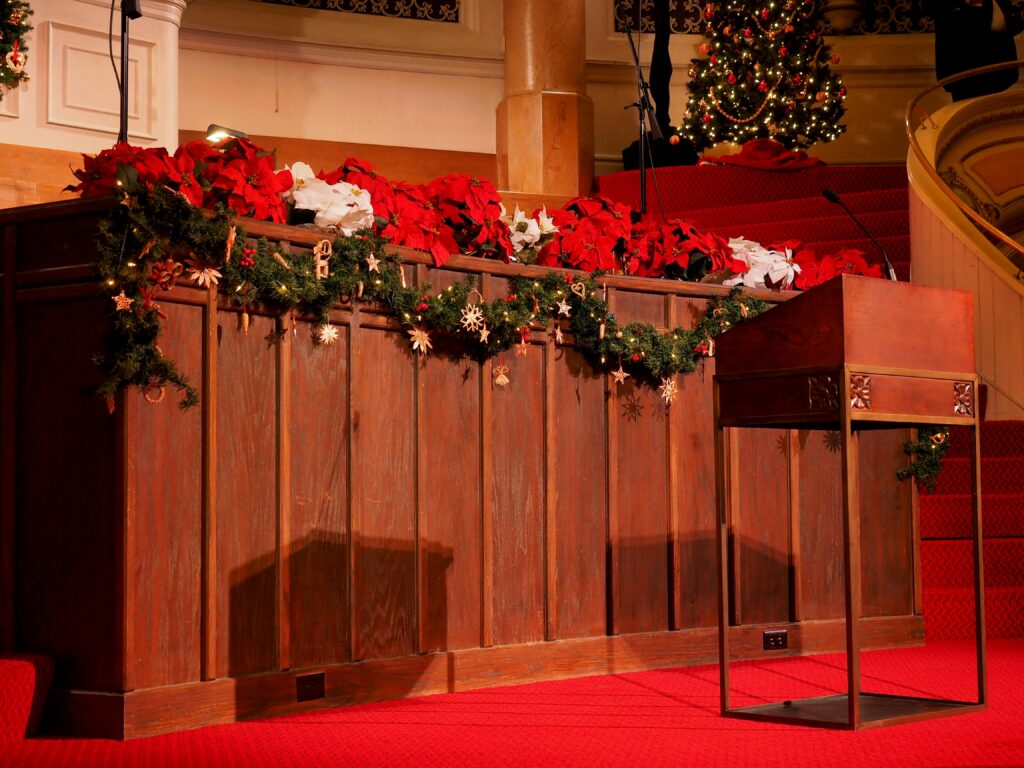 As the season of giving approaches, many people reflect on how they can make a lasting impact on the causes that matter most to them. For some, this includes leaving a gift to their church or a cherished organization as part of their estate planning. Thoughtful planning allows you to extend the spirit of generosity beyond your lifetime and ensure your legacy supports the values and missions close to your heart. However, crafting a plan to leave money or property to an organization requires careful consideration to avoid potential pitfalls. So let’s discuss how to properly plan to leave a legacy to your church (or any charitable organization).
As the season of giving approaches, many people reflect on how they can make a lasting impact on the causes that matter most to them. For some, this includes leaving a gift to their church or a cherished organization as part of their estate planning. Thoughtful planning allows you to extend the spirit of generosity beyond your lifetime and ensure your legacy supports the values and missions close to your heart. However, crafting a plan to leave money or property to an organization requires careful consideration to avoid potential pitfalls. So let’s discuss how to properly plan to leave a legacy to your church (or any charitable organization).
Clearly Define Your Intentions
When leaving a gift to your church or organization, be specific. State the exact amount of money or the specific property you wish to leave, and identify the beneficiary with complete clarity. Use the organization’s legal name, address, and tax identification number to avoid confusion or legal disputes. If the gift has a designated purpose, such as funding a specific ministry or project, spell that out in detail.
Specifically State Your Intended Gift In Writing
A verbal promise, no matter how heartfelt, does not hold legal weight when it comes to estate planning. Ensure your intentions are documented in a properly executed will or trust. Oral statements can lead to misunderstandings, and the organization may not receive your gift as intended.
Notify The Organization Of Your Intentional Gift
Surprising an organization with a gift after your passing may lead to complications, especially if the gift has conditions or requires maintenance (such as a real property). Inform the organization about your plans in advance to confirm their ability to accept and manage your gift responsibly.
 Consider Using A Trust For Larger Gifts
Consider Using A Trust For Larger Gifts
For substantial gifts, a trust can provide more control and flexibility. For instance, you might set up a charitable trust to provide ongoing financial support or restrict the use of the funds to specific purposes. This ensures your legacy continues to support your chosen cause over time.
Don’t Overlook Contingencies
Circumstances can change. Organizations may merge, dissolve, or shift their mission. Include a contingency plan in your estate plan to specify how your gift should be handled if the intended beneficiary is no longer in existence or capable of receiving it.
Be Sure To Review and Update Your Estate Plan Regularly
Life events, changes in your relationship with the organization, or shifts in your financial situation may require updates to your estate plan. Regularly reviewing your will ensures it reflects your current intentions and priorities.
Consider Family Dynamics
While your intentions to support a church or organization may be noble, leaving substantial gifts to charity while neglecting family members can cause tension or legal challenges. Consider balancing your charitable giving with family needs to avoid potential disputes or hurt feelings.
Consult With A Knowledgeable Estate Planning Attorney
Working with an estate planning attorney is essential to ensure your gift complies with state laws and is structured in a way that benefits both you and the organization. An attorney can help you navigate potential tax implications and draft language that minimizes ambiguity or disputes.
Leaving money or property to your church or a charitable organization is a powerful way to extend the season of giving into the future. By taking the time to plan carefully, you can ensure your generosity creates a meaningful and lasting legacy that aligns with your values and supports the causes you hold dear.




